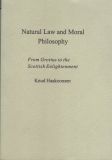用户登陆搜 索 |
查看图书
图书目录:Acknowledgements
Introduction: The Scottish Enlightenment in the history of ideas 0.1 The Scottish Enlightenment 0.2 The history of ideas Natural law in the seventeenth century 1.1 Francis Suárez 1.2 Natural law and Protestantism 1.3 Hugo Grotius 1.4 Thomas Hobbes 1.5 The German debate 1.6 Samuel Pufendorf 1.7 Reactions to Pufendorf 1.8 Gottfried Wilhelm yon Leibniz 1.9 Nathaniel Culverwell 1.1o Richard Cumberland 1.11 John Locke 1.12 Transitions to eighteenth-century Scottish moral thought 1.13 Conclusion Natural law and moral realism: The civic humanist synthesis in Francis Hutcheson and George TurnbulI 2.1 Interpreting Scottish moral philosophy 2.2 Hutcheson: Voluntarism, realism, and egoism 2.3 Hutcheson's moral realism and cognitivism 2.4 The political ambiguity of Hutcheson's 'moraI theory 2.5 Natural jurisprudence in Hutcheson's system 2.6 The coherence of Hutcheson's thought 2.7 Hutcheson and the development of Scottish moral thought 2.8 Turnbull and Heineccius 2.9 Natural law and Harringtonianism 2.1o Conclusion Between superstition and enthusiasm: David Hume's theory of justice, government, and politics 3.2 The politics of religion 3.2 Morals -found or constructed 3.3 Justice 3-4 The basis for authority 3-5 Opinion and the science of politics 3.6 The distribution of justice 3.7 The role of rights 3.8 The right to govern 3.9 Above parties 3.10 The stability of Great Britain 4 Adam Smith out of context: His theory of rights in Prussian perspective 4.1 Smith's theory of rights 4.2 The jurisprudence of Samuel von Cocceji 4.3 Smith and Cocceji compared 4.4 Kantian themes in Smith John Millar and the science of a legislator 5.2 Introduction 5.2 A theory of justice and rights 5.3 A theory of law 5-4 A theory of government 5.5 A theory of property 5.6 A question of ideology 5.7 A role for history 5.8 Conclusion 6 Thomas Reid's moral and political philosophy 6.1 Human knowledge 6.2 Human agency 6.3 Principles of moral judgement 6.4 Duty and virtue 6.5 Natural jurisprudence 6.6 Property 6.7 Contract 6.8 Political jurisprudence: The contract of government 6.9 Rulers and ruled 6.10 Utopia 6.11 Revolution or reform 7 Dugald Stewart and the science of a legislator 7.1 Smith or Reid 7.2 Elements of a theory of morals 7-3 Knowledge and social progress 7-4 Jurisprudence and political economy 8 The science of a legislator in James Mackintosh's moral philosophy 8.1 Adam Smith and Dugald Stewart 8.2 The Vindiciae Gallicae 8.3 After Vindiciae Gallicae: Moral philosophy 8.4 After Vindiciae GaUicae: History and jurisprudence 9 James Mill and Scottish moral philosophy 9.1 Introduction 9.2 The use and abuse of conjectural history 9-3 Politics in a morally well-ordered world lo From natural law to the rights of man: A European perspective on American debates l0.1 English and American jurisprudence l0.2 Law, duty, and rights l0.3 Rights and contractarianism 10.4 Natural law theory and moral philosophy in America 10.5 Inalienable rights l0.6 Evangelicalism and Christian utilitarianism 10.7 Self-government and obligation Bibliography Manuscript sources Printed sources Secondary literature Index |

